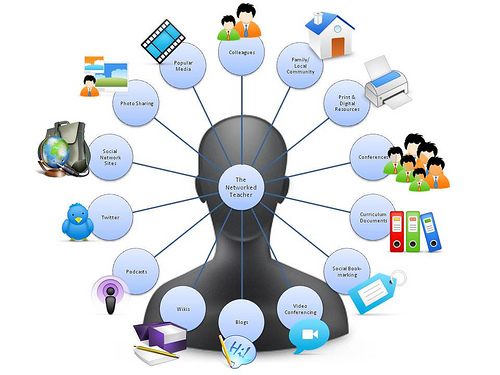Can You Order Lifelong Learning from Amazon.com?
 Jeff Selingo is saying that something to watch this year concerning continuous learning/universal learning/60-year curriculum/lifelong learning (I'm not sure what the term du jour is) is not coming from universities but from Amazon.
Jeff Selingo is saying that something to watch this year concerning continuous learning/universal learning/60-year curriculum/lifelong learning (I'm not sure what the term du jour is) is not coming from universities but from Amazon.
This idea that we are always learning is hardly a new idea. But the idea that schools (at all levels) should supply that learning to non-traditional students who have left the school or maybe never attended the school is fairly new. Distance-learning began in the U.S. in the late 1800s. "Distance" meant that the learning was not in a classroom.
It went from the correspondence-course model to the broadcast airwaves to the combination of snail-mailed CDs and DVDs and finally online.
Selingo says that Amazon plans to spend more than $700 million to train 100,000 employees for higher-skilled jobs over the next six years. What's missing? Any college or university to design or deliver that training.
I also think that this idea is not brand new. Companies have been designing their own training for many decades. When I started at the New Jersey Institute of Technology in 2000, my department was helping design and provide training courses to companies. But as the decade progressed, I noticed more companies were designing the training and we were simply the delivery method. And now, it's more likely that the company might design and deliver.
What might be different in the case of Amazon is that if it follows their past path in cloud computing this will have a different result. For the cloud, they built their own platform internally (Amazon Web Services - AWS), worked out the bugs and then licensed it to scale. Might they eventually do the same thing with their higher-skilled training?
The rate of change in the skills and training needed now is far beyond the rather slow course-creation process of higher education. Selingo says that the legacy undergraduate and graduate degree programs at traditional universities and even the certificates that came into vogue in the 21st century don't make it.
Why is that? Because they take too long, cover more than is needed, and cost too much. I helped develop corporate training and certificates, but the university always had an eye on trying to lure those learners back to the university for a degree. That's not a valid approach anymore.
"Amazon University" doesn't exist yet, but many lifelong learners are already turning to YouTube, Khan Academy, MOOCs, LinkedIn Learning, General Assembly and other sources for continuous learning opportunities.
Selingo concludes that colleges and universities need to shift their thinking from serving students to the needs of learners.
MORE
From The Warehouse To IT: Amazon Offering 100,000 Workers Tech Training (NPR)
The idea that college education is over after four years, or even eight or 12 is so — yesterday - but 60 Years of Higher Ed — Really?

 I didn't get to attend a workshop on personal learning networks (PLNs) led by
I didn't get to attend a workshop on personal learning networks (PLNs) led by 
 The argument that a college degree is or isn't the path to a job surfaces regularly. Many studies show that having a degree ultimately leads to greater earnings in a lifetime, and colleges love to see that research out there. But in the past few decades, you find more stories in the news about people succeeding in the workplace without degrees.
The argument that a college degree is or isn't the path to a job surfaces regularly. Many studies show that having a degree ultimately leads to greater earnings in a lifetime, and colleges love to see that research out there. But in the past few decades, you find more stories in the news about people succeeding in the workplace without degrees.